Student Blog
Classes

Assessing Cognition While COOKING! ⟩
October 24, 2015, by Rashelle
Classes What are OS/OT?
This week, in the Primary Care Elective class, we learned how to assess somebody’s cognitive abilities, by analyzing their performance in the kitchen! To begin, we looked at the Kitchen Task Assessment, which requires a patient to prepare pudding by following the directions of a commercial package. I was able to role play as the patient in front of the class, as another student pretended to be my therapist. Due to my limited knowledge in cooking and safety awareness, I fulfilled the perfect role of a patient needing cognitive support during a functional task of daily living.
The picture below displays the score I got on the Kitchen Task Assessment.
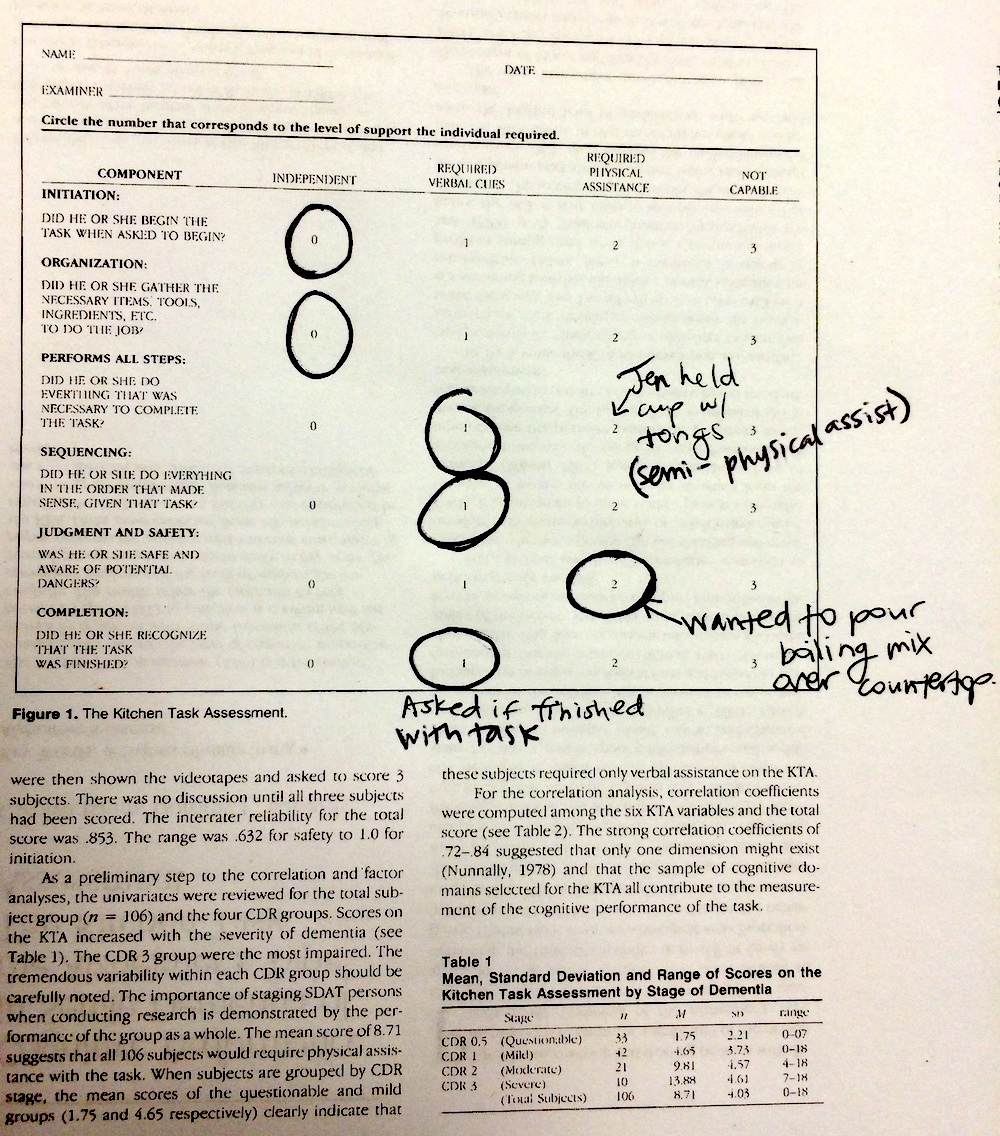
Scoring the Kitchen Task Assessment
As you can see, I required assistance from my therapist both in verbal cues and physical assistance. Jen, the practicing therapist, needed to give me verbal reminders of when to add in the pudding mix to the boiling water, how many cups were needed to pour the finished pudding into, and when the task had come to a complete end. I required slight physical assistance when Jen held one of the cups for me to pour the pudding into, and when I attempted to pour the boiling hot pudding mix into the cups on the counter, in an unsafe manner. PHEW. Was it a relief when I finished!
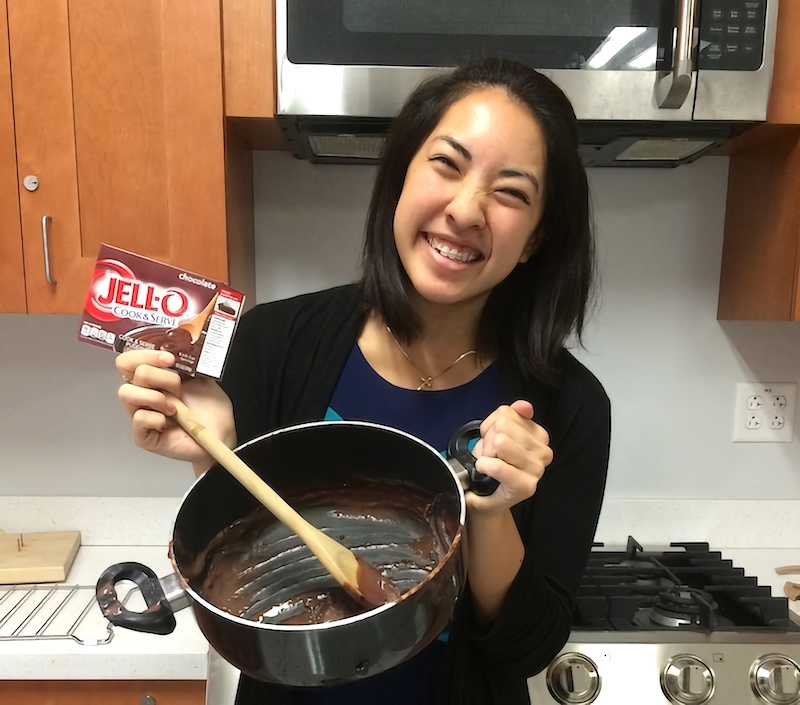
Finished Pudding After Completion of Kitchen Task
Every step of the pudding-making process we, as a class, discussed possible scenarios that we may encounter when working with a patient that may have an actual cognitive impairment (e.g., when diagnosed with Alzheimer’s or a traumatic brain injury). After role-playing this encounter, I can better empathize with my future patients, whom may face confusion, agitation, disappointment, apprehension or timidness while performing this task. I am excited to also be able to problem-solve with these patients on how they can change their approach to the task, to be able to cook as independently as possible, in a safe and effective manner.
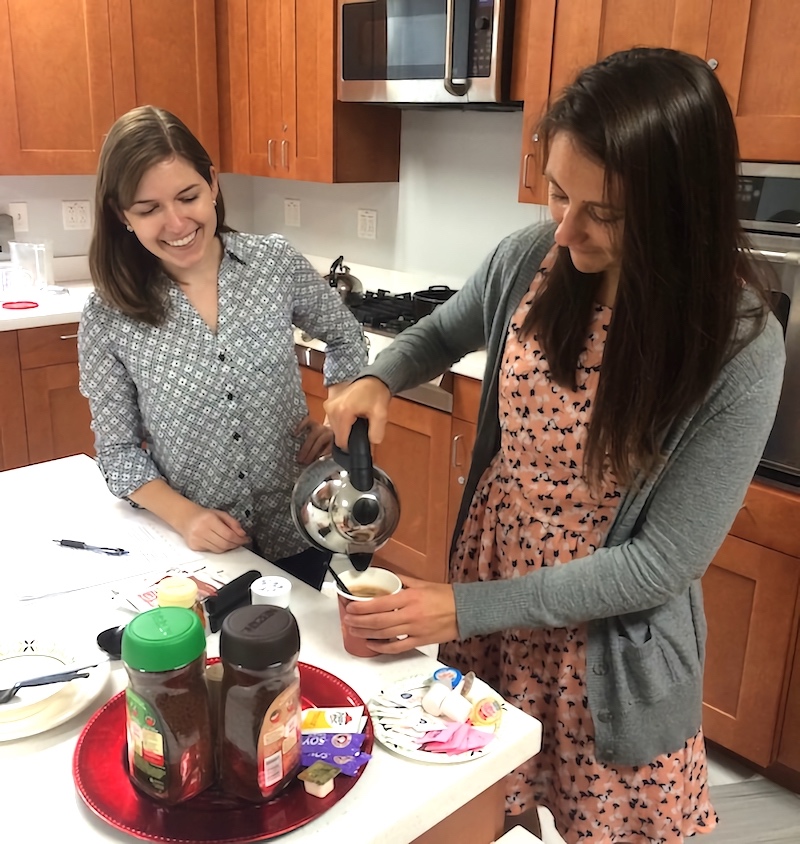
Kettle Test
Here, two other students, Kellyn Trummer and Renée Boivin, are demonstrating the Kettle Test — a cognitive functional screening test that requires a patient to prepare two cups of hot beverages. Similarly to the Kitchen Task Assessment, every component of the task is scored on the patient’s level of independence, which the therapist then will use to determine the amount of assistance the patient will need tp perform a functional task. For instance, the Kettle Test analyzes a person’s ability to prepare the hot water, assemble the kettle and add all of the ingredients together despite having visual distractions.
Overall, this lesson was a great opportunity to improve our clinical reasoning skills, and to practice assessments that an occupational therapist may use in the future!
⋯
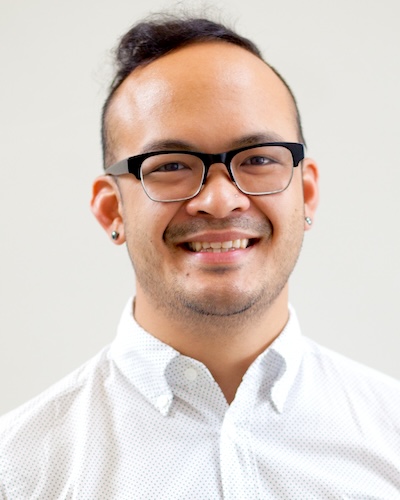
Silly OTs . . . Peds are for Kids! ⟩
October 8, 2015, by Joe
Classes What are OS/OT?
This week Pediatrics has focused on Sensory Integration, which basically looks at how a child’s sensory processing relates to their motor planning and ability to engage in occupation. Sensory Integration, or “SI”, was started by USC’s own A. Jean Ayres, who was part of the first OT class to graduate from USC in 1945!
When I first looked into OT, I found this to be one of the most fascinating specialty areas . . . and today, I also found out that it can be super fun!
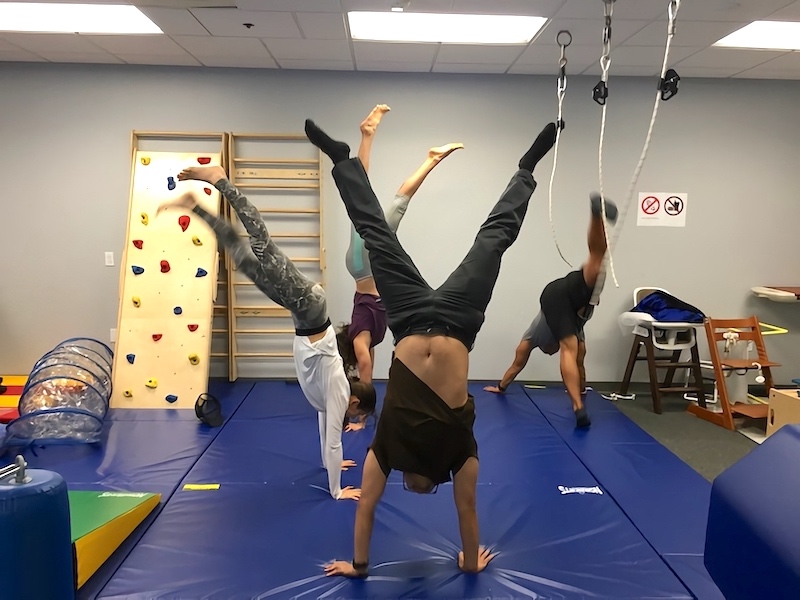
[just working on some vestibular, proprioceptive & tactile integration]
In lab, we got to use a variety of the tools & equipment needed for effective Sensory Integration treatment.
It might look like we’re playing in a kids’ gym or maybe training for the circus, but we use these tools to provide important sensory experiences for children with sensory processing disorders (which is common for children with Autism, for instance). The various types of swings, mats, and sensory “toys” give us fun, playful ways to target a child’s sensory systems related to touch, movement in space, & bodily awareness. Through this type of targeted therapy, we aim to help develop a child’s neurological systems to better process information from the environment to support their engagement in activities, such as play and daily living.
You can read up more on Sensory Integration.
Now I’m off to my next fun occupation!
⋯

Fine Motor Merriment! ⟩
October 1, 2015, by Ariel
Classes Videos What are OS/OT?
This week in Pediatrics, we created our very own Fine Motor Toolkits! This project was one of many interactive ways in which our teachers help us process the concepts we are learning in class. Our directions for the toolkit were to use our knowledge of pediatric fine motor skill development in order to create activities that could be used as therapeutic interventions. To do so, we addressed all kinds of potential developmental challenges that children with disabilities might be struggling with: grasp patterns (for writing), in-hand manipulation, finger strength, tool use, stereognosis (the ability to perceive objects by touch), and kinesthesia (the awareness of the movements of one’s body).
We went around and shared our ideas in class; I must say, I was very impressed! It was inspiring to see what everyone had come up with for their activities. I am so lucky I get to call these creative, talented, and intelligent people my classmates.
Here is a video of one of the Pediatric Fine Motor Toolkits born out of this assignment, created by Palita Joyce Thamparipatra!
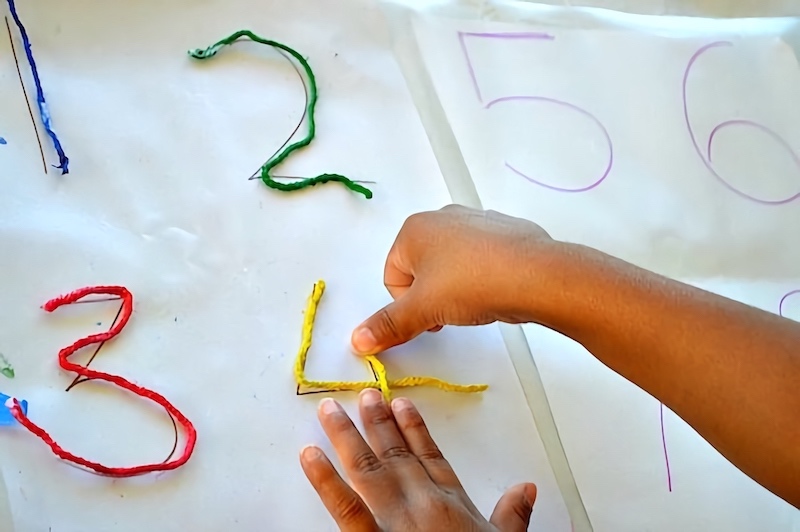
⋯

So you want to be a licensed OT in the US? ⟩
September 27, 2015, by Samar
Classes What are OS/OT?
You are already a practicing occupational therapist with a bachelor’s degree in OT and aspire to get your occupational therapy license to practice OT in the US . . . But you don’t know where to start!
According to American Association of Occupational Therapy (AOTA), effective July 31, 2013, the minimum criteria established by the National Board for Certification in Occupational Therapy (NBCOT) to be eligible for the initial certification examination, which required for practice:
- Completion of an Entry-Level Bachelor’s Degree in Occupational Therapy from a government authorized and/or WFOT approved college or university occupational therapy educational program AND a Post Professional Masters Degree in Occupational Therapy OR
- Completion of an Entry-Level Master’s Degree in Occupational Therapy from a government authorized and/or WFOT approved college or university occupational therapy educational program
What this means is that you need to first complete a post-professional master’s degree in Occupational Therapy. The one-year post-professional master’s program offered by USC is a great option for that. Second, apply for NBCOT’s Occupational Therapy Eligibility Determination (OTED) review. NBCOT will review your credentials for both your bachelor’s degree and master’s degree in OT to determine if you’re eligible to sit for the initial national certification examination. Once you’re determined eligible, you can apply and schedule for the NBCOT exam. After you pass the exam you’re ready for the final step for getting your state license. Depending on which state you plan to practice in, the requirements might be different. Check out the California Board of Occupational Therapy requirements. Other resources that you might find useful to check out are the AOTA website on working and studying in the US and the AOTA’s NBCOT exam prep website.
I hope this has been helpful in terms of having all of the information you might need in one place. Last but not least, if you have any more questions, feel free to contact me. I have been through the process recently and would be more than happy to help!
⋯

My OTD life so far ⟩
September 21, 2015, by Samar
Classes
Hello friends,
I can’t believe a month has gone by since the start of school! Today, I wanted to talk to you more on what it means to be an occupational therapy doctorate resident at USC. I am enrolled in OT620 Current Issues in Occupational Science and Occupational Therapy for four units and in OT686 residency for six units which equates to 20 hours/week at my residency site. I am definitely doing more than 20 hours/week but I thoroughly enjoy my time there. What’s not to love about practicing occupational therapy in your favorite setting with your favorite population? On top of that, I am practicing with the mentorship and supervision of my clinical preceptor and educator at my residency site and with support from a faculty mentor from the USC Chan Division of Occupational Science and Occupational Therapy. The OT620 definitely compliments the residency in a sense that I’m getting weekly peer support from fellow OTD residents and I’m learning more about quality improvement and evidence based practice. In the meantime, my residency plan for the next year is slowly coming to shape. Also, I am deciding what my literature review is going to be about which will inform my evidence based practice. I’m keeping busy and I’m loving it!
⋯





